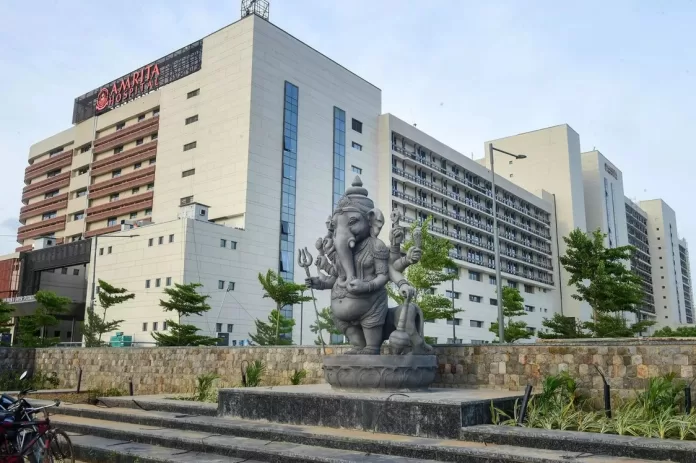Dr. Bhaskar Viswanathan, Head of the Department of Radiation Oncology at Amrita Hospital, Faridabad, has been selected for a prestigious research grant aimed at developing an indigenous robotic ultrasound system for tumor motion tracking and radiation hyperthermia in cancer treatment. Collaborating with Dr. Avinash Eranki, Assistant Professor at the Indian Institute of Technology – Hyderabad, and Eranki Labs Private Limited, along with Amrita Centre for Advanced Robotics, Dr. Viswanathan’s team embarks on a pioneering journey to revolutionize cancer therapy.
Expressing his delight, Dr. Bhaskar Viswanathan stated, “We are thrilled to embark on this endeavor to develop a robot-assisted ultrasound system for image-guided therapies and hyperthermia in cancer treatment. This non-invasive technique holds immense promise for tumor ablation, mild hyperthermia, and motion management during radiation delivery, ensuring targeted and effective treatment with minimal collateral damage.”
Elaborating on the significance of the technology, Dr. Viswanathan emphasized its role in precise lesion localization, enabling tailored radiation delivery while safeguarding surrounding healthy tissue. The integration of robotic ultrasound facilitates real-time tracking of tumor motion, enhancing treatment accuracy and efficacy.
Highlighting the importance of hyperthermia in cancer therapy, Dr. Viswanathan explained, “Hyperthermia, coupled with radiation therapy, sensitizes cancer cells to treatment while enhancing oxygen and chemotherapy delivery. By precisely targeting tumor regions, we aim to maximize therapeutic benefits while minimizing adverse effects on patients.”
Dr. Avinash Eranki, CEO of Eranki Labs Pvt. Ltd., underscored the need for spatially precise treatment delivery, emphasizing the interdisciplinary collaboration’s potential to advance cancer care. The partnership between medical and engineering domains, supported by the Indian Council of Medical Research (ICMR), underscores a holistic approach to treatment innovation.
With a projected timeline of three years, the research team aims to realize the full potential of robotic ultrasound technology in cancer therapy, paving the way for improved patient outcomes and enhanced quality of life.














